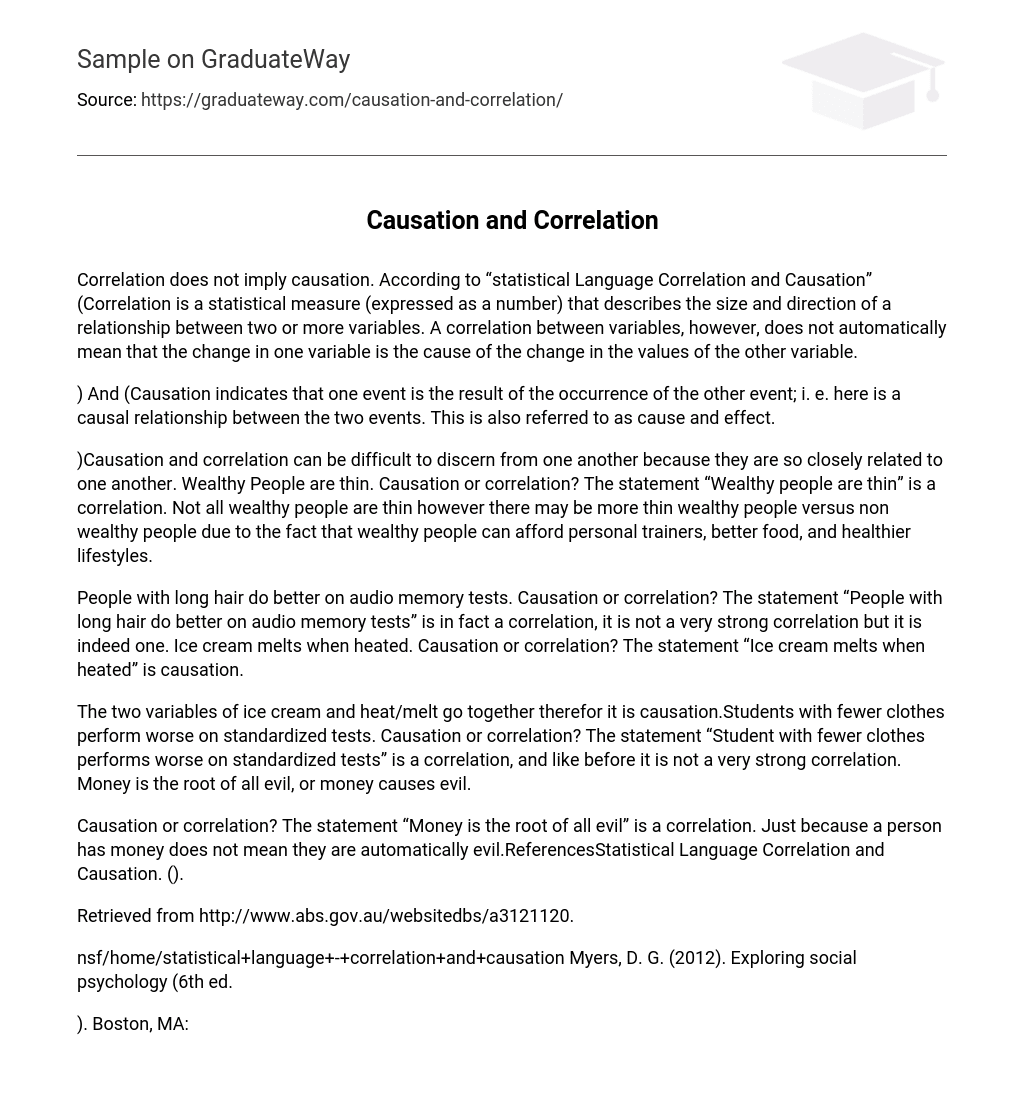Correlation and causation differ from each other, as clarified in the article “Statistical Language Correlation and Causation.” Correlation evaluates the strength and direction of the relationship between variables. Nevertheless, it is crucial to acknowledge that simply observing a correlation does not establish a cause-and-effect relationship between the variables.
Causation, which is also known as cause and effect, occurs when one event occurs due to another event.
Determining the distinction between causation and correlation is difficult because they are closely related. The statement “Wealthy people are thin” demonstrates correlation instead of causation. It is important to recognize that not all wealthy individuals are thin. However, the greater occurrence of thin people among the wealthy can be attributed to their ability to afford personal trainers, healthier food, and generally lead healthier lifestyles compared to non-wealthy individuals.
The statement “People with long hair do better on audio memory tests” is an example of a correlation, albeit a weak one. Conversely, the statement “Ice cream melts when heated” demonstrates causation.
There is a causal relationship between ice cream and heat/melt. Additionally, when students have less clothing, their performance on standardized tests tends to decrease. However, the correlation between these factors is not strong. It is widely believed that money is the root cause of evil; therefore, it can be inferred that money causes evil.
The statement “Money is the root of all evil” can be understood as a correlation rather than a direct cause. It is essential to acknowledge that having money alone does not automatically make someone evil. References: Statistical Language Correlation and Causation. ().





